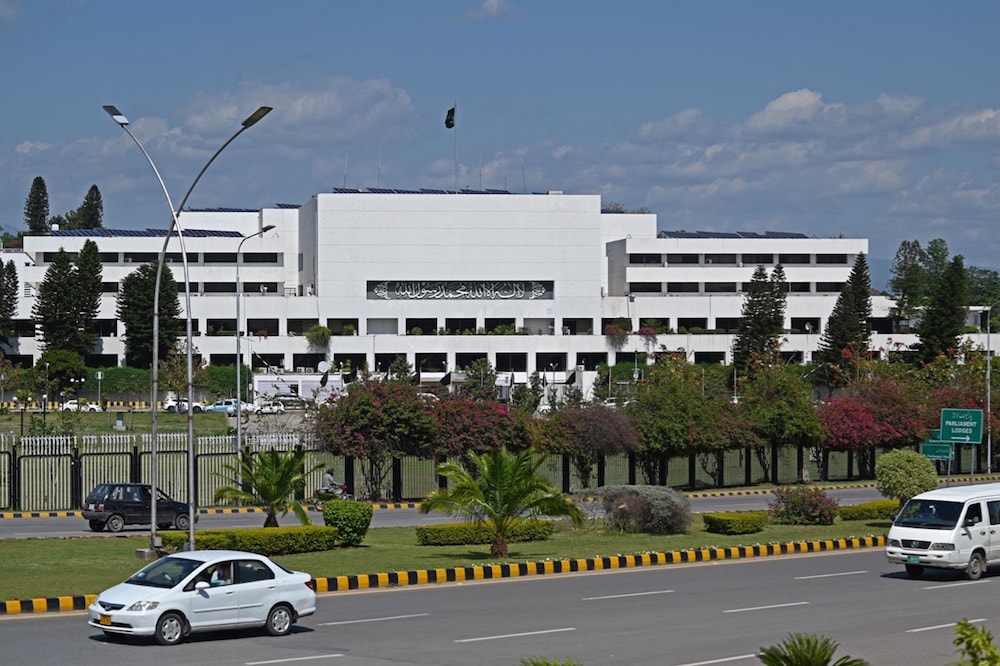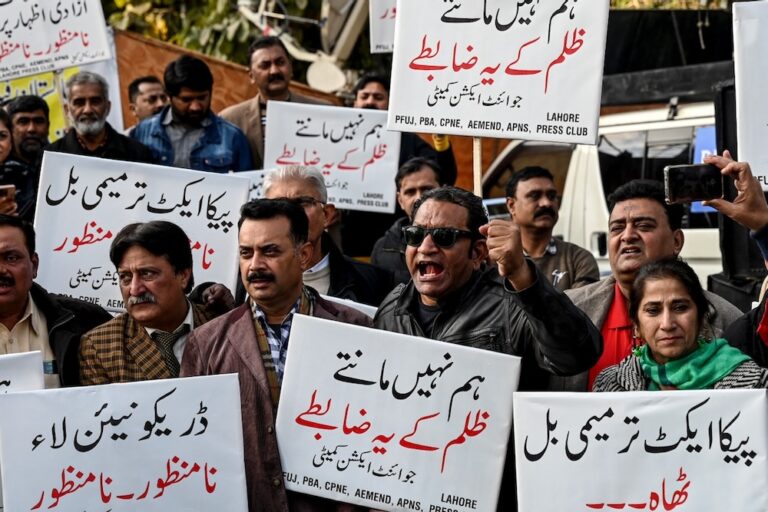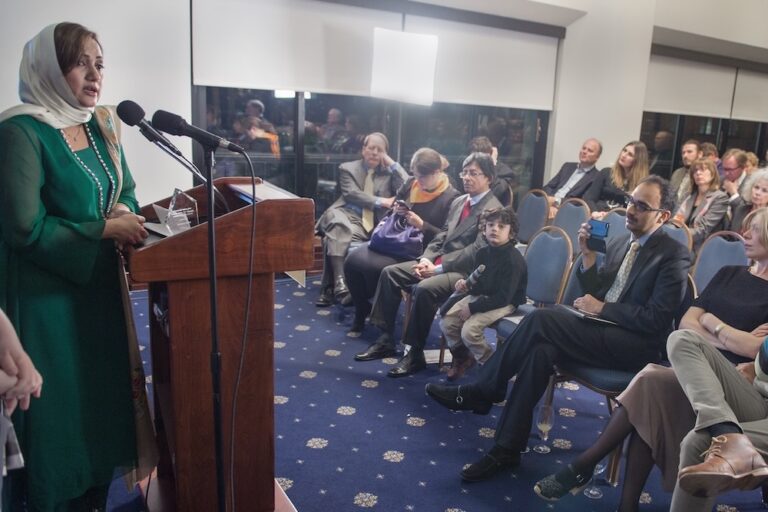Civil society groups have described the amendments to the Prevention of Electronic Crimes (Amendment) Ordinance as "an affront to online free expression."
This statement was originally published on Media Matters for Democracy’s Twitter account on 23 February 2022.
The Joint Action Committee, a coalition of civil society organizations, has condemned the Prevention of Electronic Crimes Act (Amendment) Ordinance, saying it would lead to unprecedented censorship and chilling of free speech in digital spaces.
The full text of the Joint Action Committee’s statement is given below:
“We, a coalition of civil society organisations and political collectives, are alarmed by the enactment of the Prevention of Electronic Crimes (Amendment) Ordinance, 2022 as it is an affront to online free expression in the country, amounting to unprecedented censorship and chilling of free speech in digital spaces. The Ordinance runs afoul of Articles 19 and 19A of the Constitution of Pakistan which guarantees freedom of expression. Furthermore, the process by which the amendments have been made, arbitrarily and via Ordinance bypassing Parliament, is an affront to democratic values.
The Ordinance expands on the already problematic section 20 of the Prevention electronic Crimes Act 2016 (PECA) to make it a non-bailable offense. The offense of criminal defamation under section 20 has already been used to target journalists, political opponents, and survivors of gender-based violence, leading to calls from civil society to repeal the section. Instead of paying heed to these calls, the government has, in a blatant disregard of human rights, chosen to expand the section further to apply to legal persons as opposed to “natural persons” as was previously covered. This Ordinance seeks to include defamation of “public figure or a holder of public office” within the ambit of the section which will have the effect of insulating those in power from any criticism. It is obvious that the sole purpose of this Ordinance is to make it criminally punishable to criticize the state and its officials, against settled jurisprudence that extends protections through defamation to private persons as opposed to public figures who lesser protections.
Furthermore, criminal defamation is internationally recognized to be violative of the freedom of expression, especially when civil remedies exist in the law. While the freedom of expression under the Constitution is not absolute, it bears noting that defamation is not part of the provisos to Article 19 in the Constitution. The amendments, additionally, which mean the expansion of criminal sanctions on the fundamental right to free speech are neither proportionate (as they expand the term of punishment from 3 to 5 years) nor necessary.
Secondly, the use of an Ordinance to amend a law passed by Parliament is extremely worrisome and part of an alarming trend where the government is using its extraordinary powers of Ordinance-making to erode the powers of the Parliament and lawmaking institutions. This is a blatant disregard for the Constitution, which only allows for ordinances to be in extraordinary situations when parliament is not in session and cannot be called into session to address an issue that requires immediate action. Furthermore, this is violative of the principle of the separation of powers as the executive branch through the cabinet and President are overstepping into the legislature’s domain. It is obvious that the government does not wish to pass laws through consultation, allowing no opportunity for discussion or debate–the very objective of the Ordinance itself.
We call on the citizens of Pakistan to recognize this Ordinance for what it is – an attack on their Constitutional right to free expression and access to information. If allowed to stand, this Ordinance will have the effect of completely silencing any differing opinions or forms of expression in the country. It is imperative that opposition parties, who erred when they promulgated PECA in the first place, course correct and block this Ordinance from becoming a permanent feature of the law. Lastly, the government is urged to immediately withdraw the Ordinance and refrain from presenting it for assent once the three-month lifespan of the Ordinance lapses. Instead, we call upon all political parties to repeal section 20 should be done through the Parliament given that it runs afoul the Constitutional right to freedom of speech and expression.”



